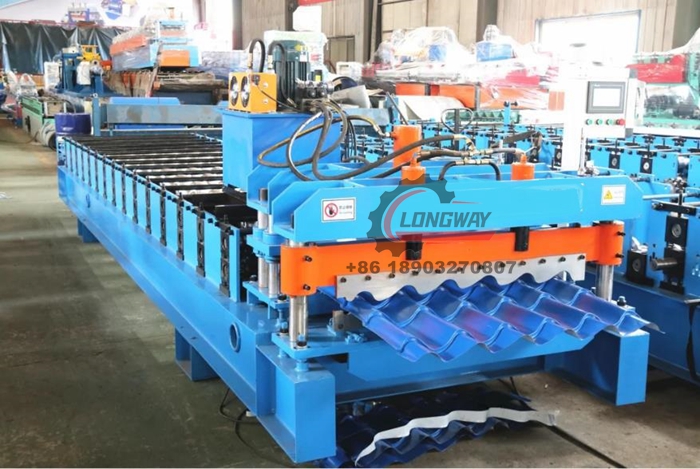custom roller former
Understanding Custom Roller Formers A Comprehensive Guide
In the world of metal fabrication and manufacturing, efficiency and precision are paramount. Custom roller formers serve as essential machines in producing various metal profiles used in construction, automotive, and other industries. This article delves into custom roller formers, their significance, how they work, and the benefits they bring to manufacturers.
What is a Custom Roller Former?
Custom roller formers are specialized equipment designed to shape metal into specific profiles by passing it through a series of rollers. These rollers gradually bend and mold the metal into the desired shape, which can range from simple angles to complex cross-sections. The term custom indicates that these machines are often tailored to the specific requirements and applications of individual manufacturers.
How Do Custom Roller Formers Work?
The operation of a roller former involves several key components and steps
1. Material Feed The process begins with feeding raw metal sheets, typically made of steel or aluminum, into the roller forming machine. This material is usually in coil form for efficiency. 2. Roller Setup Custom roller formers consist of sets of rollers, each set designed to perform a specific function in the shaping process. These rollers can be adjusted to accommodate different metal thicknesses and profiles.
3. Shaping Process As the metal passes through the rollers, it is progressively shaped. The rollers exert pressure at precise angles, ensuring consistent form and dimensions. The number of stations in a roller former varies based on the complexity of the desired profile.
4. Cutting and Finishing After achieving the desired shape, the metal may undergo additional processes such as cutting or welding to achieve final specifications. Some custom roller formers are equipped with integrated cutting tools for in-line processing.
Applications of Custom Roller Formers
Custom roller formers are employed across various industries due to their versatility. Some common applications include
1. Construction Industry Custom profiles are essential for producing roof panels, wall studs, and other structural components. Roller formers can create profiles that enhance the structural integrity and aesthetic appeal of buildings.
custom roller former

2. Automotive Manufacturing In the automotive sector, roller formers are used to manufacture components such as chassis, brackets, and frame parts. The precise forming and cutting capabilities ensure that parts fit together seamlessly for assembly.
3. HVAC Systems The heating, ventilation, and air conditioning (HVAC) industry relies on custom formed ducts and components. Roller formers can create precisely shaped metal parts that optimize airflow and energy efficiency.
4. Furniture and Fixtures Custom profiles are also widely used in manufacturing furniture pieces and fixtures, allowing for innovative designs that require specific shapes and dimensions.
Benefits of Custom Roller Formers
Investing in a custom roller former provides various advantages for manufacturers
1. Cost-Effectiveness Automated roller forming processes reduce labor costs and material waste compared to traditional fabrication methods. This efficiency translates into lower production costs.
2. High Precision and Consistency Custom roller formers guarantee high levels of precision in metal shaping, ensuring consistent quality across batches. This reliability is crucial for industries where even minor variations can cause significant issues.
3. Customization for Unique Requirements The ability to tailor roller formers to specific needs allows businesses to produce parts that meet unique specifications. This flexibility enhances competitiveness in the market.
4. Speed Roller forming is a rapid process, enabling manufacturers to increase production throughput. Reduced lead times improve the overall responsiveness of the supply chain.
5. Durability and Strength Parts produced through roller forming often demonstrate improved strength, making them suitable for demanding applications without compromising durability.
Conclusion
Custom roller formers represent a significant advancement in the field of metal fabrication. Their ability to create tailored profiles efficiently and precisely has transformed manufacturing processes across various industries. As technology continues to evolve, the capabilities of custom roller formers will expand, paving the way for even greater innovations in production and design. For manufacturers seeking to enhance their operations and product offerings, investing in custom roller forming technology is a forward-thinking choice that promises substantial returns.
-
The Latest Trends in Cut to Length Equipment and MachinesNewsMay.09, 2025
-
Revolutionizing Door Frame Production: The Power of Modern MachinesNewsMay.09, 2025
-
Revolutionary Machines for Roller Shutter and Garage DoorsNewsMay.09, 2025
-
Everything You Need to Know About Gutter Roll Forming MachinesNewsMay.09, 2025
-
Efficiency in Coil Handling with Hydraulic Decoiler MachinesNewsMay.09, 2025
-
Downspout Roll Forming Machines and Their ValueNewsMay.09, 2025
-
Revolutionizing the Door Frame Industry: Key Insights on Roll Forming MachinesNewsApr.18, 2025








